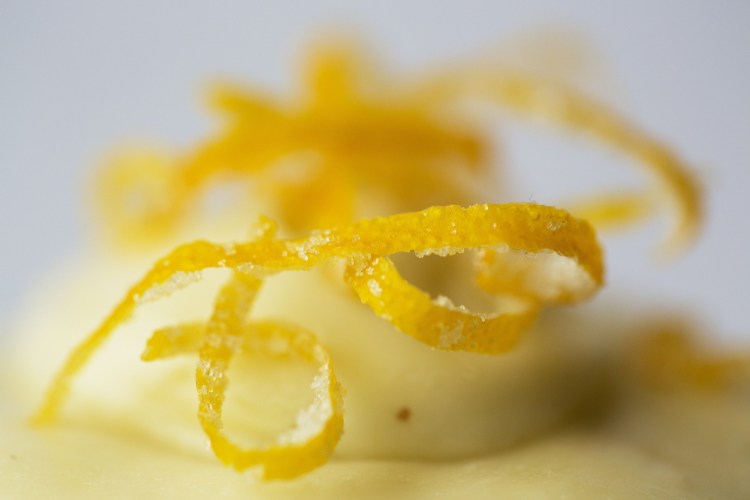Most Maine locavores have a few “foreign” foods they won’t live without. Think avocados, bananas, chocolate, coffee and tea.
Fair Trade and Certified Organic labels give social justice standing, of course. But even with those underpinnings, we must own the fact that all of these items come quite a distance from their trees or shrubs to our plates via energy-guzzling boats, planes, trains and/or 18-wheelers.
My weakness is citrus fruit. Midwinter luxuries include bright Meyer lemons, surprising blood oranges and subtly sweet pomelos. I could forgo these if pressed. But as a cook and an eater, I would not choose to live without lemons.
The Agricultural Marketing Resource Center at Iowa State University counts Florida (63 percent) and California (34 percent) as the major citrus producers in the United States, with Texas and Arizona combining to grow the last 3 percent. My lemons come exclusively from the West Coast, as California produces more than 92 percent of the nation’s lemons.
So to salvage my greenness on the lemon front, I use the colorful zest, the tangy juice and the bitter pith of every lemon I buy.
With the rise of the microplane as a kitchen tool, more and more recipes, both sweet and savory, call for grated lemon zest. I heartily thank the Canadian housewife who grabbed her husband’s microplane rasp from the workshop and repurposed it as a less bloody-knuckle alternate to the box grater.
But my favorite zesting tool is called, well, a zester. It’s a short-handled tool with a stainless steel top that resembles a stubby hand. The finger tips in this descriptive analogy are round blades. You drag those blades along outside of the lemon (or any other citrus fruit on hand) for long, curly pieces of zest that can be candied (see recipe).
Candied lemon peel is a satisfying late afternoon nibble and can decoratively elevate winter desserts. You can use the syrup from the candying process as a glaze for a pound cake or a sweetener for a lemony cocktail.
Without its protective coating, naked citrus dries out very quickly. So immediately following the zesting process, I juice the lemon, or oranges or grapefruits as the case may be, into ice cube trays and freeze the cubes for future use.
I was also recently introduced to a way to use the pith – the thick bitter white lining between the peel and the fruit – by cookbook writer and blogger Eugenia Bone, who tells the story of her grandmother rolling pieces of the pith, blanching them three times to wash away that bitterness, and making Greek Lemon-Spoon Treats, which are served to guests in Greece as a symbol of hospitality.
I plan to make a batch to welcome the lemons that arrive in my home and honor the miles they traveled to get here.
CANDIED CITRUS ZEST
Makes 1/2 cup candied zest and 1 cup citrus simple syrup
4 lemons, limes, Meyer lemons, oranges or blood oranges
1 1/4 cups granulated sugar, divided
Use either a citrus zesting tool or a vegetable peeler to remove the peel from the fruit in long pieces, getting as little of the pith as possible. If you used a peeler, take a sharp knife and slice the peel into very thin strips. Place julienned zest in a small bowl; cover with boiling water. Let stand 30 minutes, then drain.
Place 1 cup sugar and 1 cup water in a saucepan over medium high heat. Stir until the sugar has dissolved. Add zest. Reduce heat to medium. Simmer zest for about 15 minutes until it is slightly opaque.
Drain zest, reserving syrup for other uses. Allow the zest to sit in the strainer for 30 minutes to dry slightly.
Place remaining 1/4 cup sugar in a large bowl and add drained zest. Toss zest in the sugar. Shake off the excess sugar and place candied zest on a dry towel. After it has dried for 2 hours, move zest to an airtight container and store at room temperature for up to 2 weeks.
Christine Burns Rudalevige is a food writer, recipe developer and tester, and cooking teacher in Brunswick. She writes about Maine seafood at www.familyfish.net. Contact her at cburns1227@gmail.com.
Send questions/comments to the editors.


